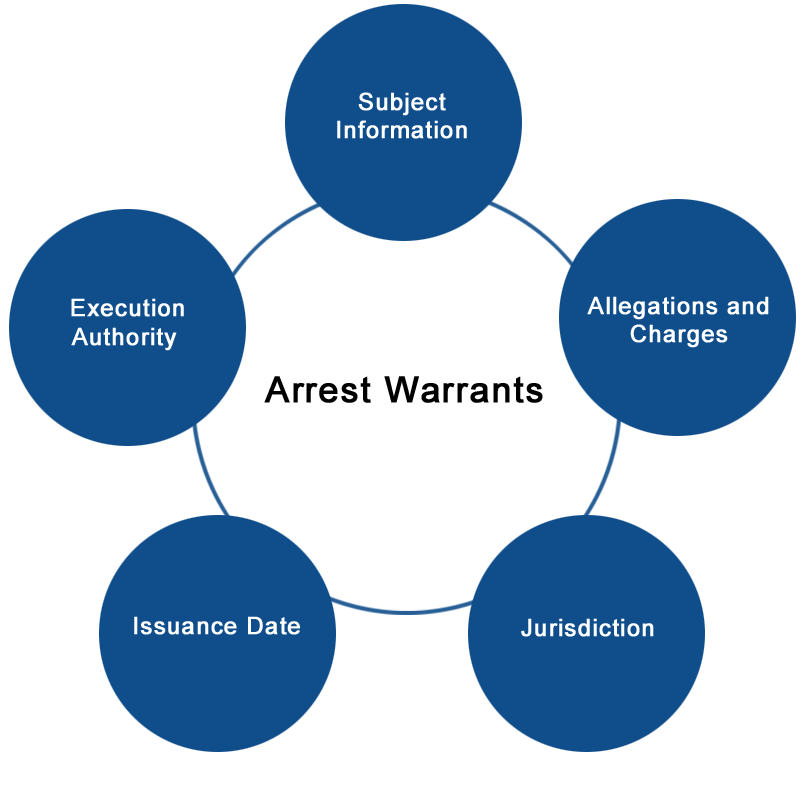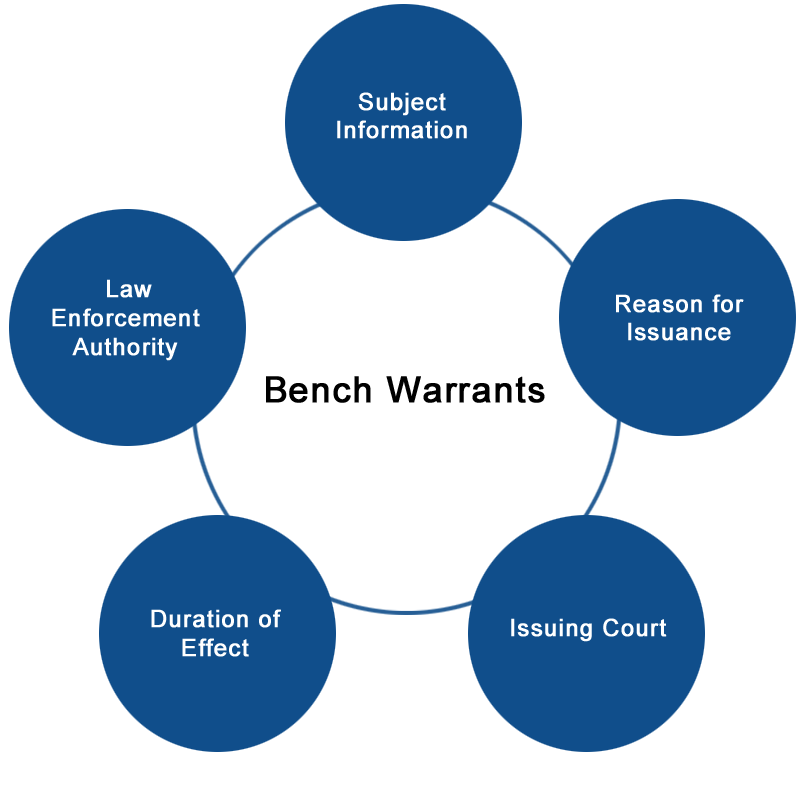Bench or Arrest Warrants in Wisconsin
Under Wisconsin law, there are two types of warrants: an arrest warrant and a bench warrant. Both ultimately serve the same purpose: authorizing law enforcement to apprehend an individual. But each is used for a different purpose.
 Arrest Warrants
Arrest Warrants
Issued by a judge or magistrate, an arrest warrant authorizes law enforcement to actively seek out and apprehend someone who has been suspected of committing a crime. An arrest warrant is issued after law enforcement or prosecutors present sworn statements and evidence to a judge or magistrate, who will then determine whether probable cause exists that the individual in question committed the crime. If that determination is reached, the arrest warrant will be issued.
With an arrest warrant in hand, law enforcement now has legal authority to apprehend the suspect listed on the warrant. This can be executed at any time or place, bringing the suspect into custody to face the charges put before them.
There are a few key aspects of an arrest warrant that must be satisfied in the state of Wisconsin.
Who: The warrant must contain information on the individual that law enforcement is being authorized to arrest, referred to as the subject of the warrant.
What: The warrant must outline the allegations and specific charges being brought against the individual, with details of where and when the crime occurred.
Where: The warrant will typically show the county where the crime allegedly occurred, or where the subject resides. Regardless of its originating jurisdiction, the warrant may be executed anywhere in the state of Wisconsin.
When: While there is no expiration date for an arrest warrant, it must show when it was issued by the judge or magistrate.
Arrest Warrant FAQs
What Causes Law Enforcement to Request an Arrest Warrant?
The first and most common is that they have reasonable suspicion that a person has committed a crime. However, law enforcement can also request an arrest warrant for those who have violated the terms of probation or parole, those who have been indicted by a grand jury, or those who have failed to appear at a scheduled court date. Arrest warrants can also be issued via direct complaint, meaning that an individual or entity has presented evidence to the judge directly.
Do Wisconsin Arrest Warrants Cross State Lines?
Yes. If the warrant is valid and law enforcement in another state becomes aware of its existence, they can arrest the subject of the warrant regardless of which state they are in at the time.
Is It Possible to Have an Arrest Warrant Rescinded?
Possibly, with the assistance of an attorney. With their expertise, they can guide you through the process of lifting or quashing the arrest warrant, which will typically require an in-person appearance in court.
Do Arrest Warrants Expire?
Generally no. They can, under certain circumstances, be recalled or canceled by the court before they are executed.
Arrest warrants exist to ensure that the individual’s rights are protected until a legal verdict can be rendered. If you believe an arrest warrant has been issued in your name, contact an attorney as soon as possible to determine the legal steps you need to take next.
 Bench Warrants
Bench Warrants
Unlike arrest warrants, bench warrants are typically issued directly by a judge or magistrate when an individual has failed either to show up for a scheduled court date or follow directives issued by the court. In certain cases, they can be issued to subpoena a witness or compel an individual to serve on a jury. Also, unlike arrest warrants, bench warrants typically do not compel law enforcement to actively seek out the individual in question. Generally, bench warrants are entered into a database that law enforcement officers can access during routine encounters, such as traffic stops.
When law enforcement does encounter someone with an active bench warrant, they have the legal authority to arrest them and bring them before the judge. In the meantime, the individual may be held in police custody until a hearing to determine whether to release them or levy additional consequences.
A bench warrant has similar aspects to an arrest warrant, which include:
Who: The bench warrant will list the individual who failed to appear before the court at their appointed time or otherwise violated a court order.
What: The warrant must specify the reason it was issued, whether that be a missed court date or violation of an order dictated by the court.
Where: The warrant will show the county court from which the judge issued it.
When: As with arrest warrants, there is no expiration date for bench warrants. They remain in effect until the court recalls the warrant, cancels it outright, or the individual is apprehended.
Bench Warrant FAQs
What Causes a Judge to Issue a Bench Warrant?
There are several reasons why a judge may issue a bench warrant beyond simply failing to appear in court. A bench warrant can be issued for failing to respond to a subpoena or comply with court ordered fines, programs, or community service. Bench warrants can also be issued for failure to pay child support, showing contempt of court, or violating the conditions of probation.
Do Bench Warrants Expire?
Bench warrants do not carry a specific expiration date and can be executed at any time if a law enforcement officer verifies it while in contact with you. Otherwise, they remain in effect until executed or they are recalled by the court, a process that your attorney can guide you through.
What Are the Consequences of Ignoring a Bench Warrant?
Although they are less actively pursued than arrest warrants, ignoring a bench warrant is never a good idea. It could lead to greater fines as well as additional legal complications.
Are There Any Legitimate Excuses for Missing a Court Date?
If you have the proper evidence and documentation, it is possible to show the judge that you had a valid reason for failing to appear. Medical emergencies, errors in paperwork or notification, incarceration, unforeseen legal obligations elsewhere, miscommunication from the court or issues with representation all happen. Your attorney can help guide you through the process of surrendering to law enforcement and presenting your case to the court to reduce or dismiss any additional penalties.
What Is the Statute of Limitations for Warrants?
While bench warrants don’t expire, the statute of limitations does require the government to pursue prosecution within a given timeframe following a crime. In Wisconsin, the state generally has three years to bring charges against an individual following a misdemeanor. There is, however, no statute of limitations for felonies and other serious crimes.
How Can I Check for Outstanding Warrants?
The state of Wisconsin’s Consolidated Court Automation Programs (CCAP) online search allows you to comb through state records for outstanding bench or arrest warrants. You can also speak with a courthouse clerk or visit a federal courthouse to determine if any federal warrants exist.
 It is Best to Have an Attorney Check
It is Best to Have an Attorney Check
It is to your advantage to have a third party check on your behalf like an attorney. Your attorney is especially suited for this task, as they can not only shield your location and gain information on the warrant without exposing you to an arrest, but they can also gain information on the case against you and present potential evidence to prove that the allegations against you have no merit and need to be dismissed.
Speaking directly to law enforcement or courts about an arrest or bench warrant without legal representation can inadvertently lead to self-incrimination and missteps due to a lack of legal knowledge. A defense attorney is crucial as they protect rights, negotiate terms, ensure proper treatment, clarify issues, and strategize for the best legal outcomes, providing peace of mind and expert advocacy.
Schedule a Free Case Evaluation
If you believe a warrant has been issued for your arrest, schedule a free, no obligation case evaluation with the attorneys at Tracey Wood and Associates. With our help, we can explore all of your potential legal options before you communicate with law enforcement or the courts.
Call (608) 490-5779 or Schedule a Free Case Evaluation Online

